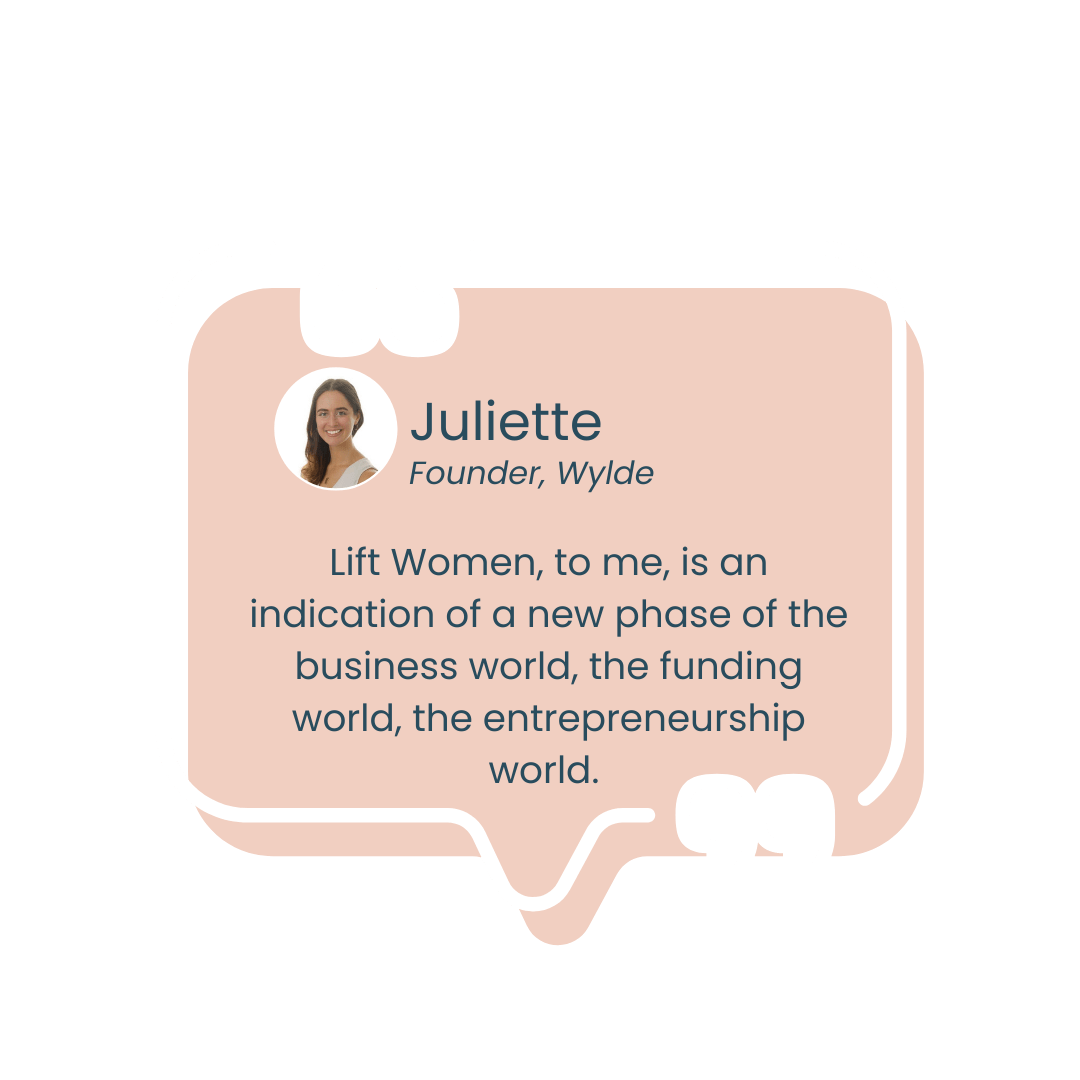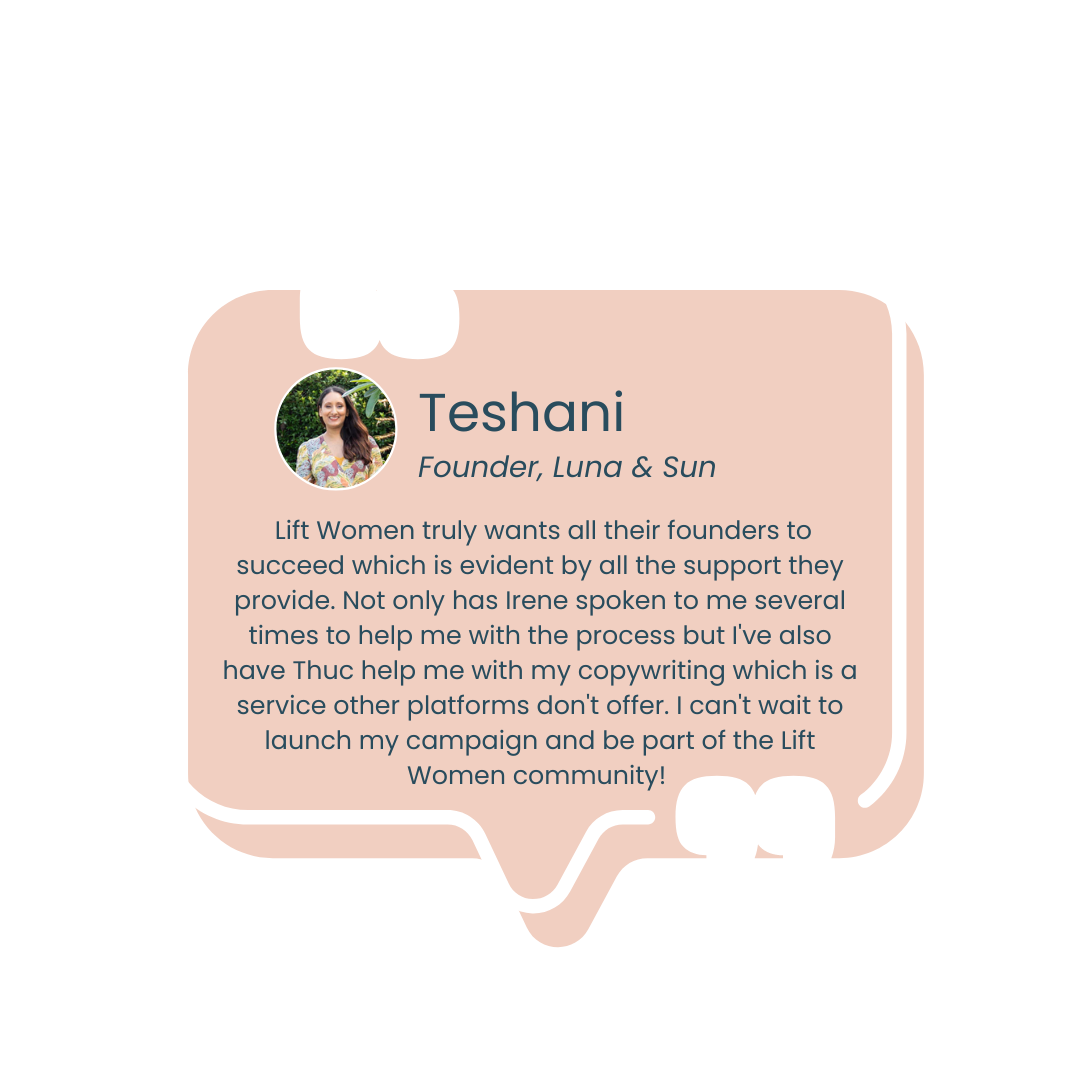How to get funding for your business
As a female entrepreneur, one of the biggest challenges you might face is finding the right funding for business to kickstart or elevate your organisation to new heights.
The promising news is that in today’s world, there are a plethora of funding options available, from small business loans, grants and rewards-based crowdfunding to venture capital funding, angel investors and equity-based crowdfunding.
To help you choose the best funding method for your business, we outline how each option works in this blog, alongside pros and cons, so settle in and get ready to learn all about how to get funding for your business.
The difference between non-dilutive and dilutive funding
Let’s start by defining the 2 different types of financing. Non-dilutive funding, like small business loans, grants and rewards-based crowdfunding, means you can raise capital without giving up any stake in your business. Dilutive funding, like VC funding, angel investors and equity-based crowdfunding, does result in the issuance of new equity shares in your business; it is basically selling a portion of the ownership of your company in exchange for capital.
The 3 types of non-dilutive financing options
1. Small business loans
A loan intended to finance a range of business needs, like purchasing inventory, hiring employees or managing cash flow. The interest rates, fees and terms and conditions of small business loans vary by lender and loan type, and the loan process may also require credit checks and for collateral to be posted; carefully evaluate options to find the best fit.
Today, it’s not only banks that provide business loans. Organisations like Coralus and Tractor Ventures also loan out funds to startups through innovative models. Coralus pools contributions from hundreds of women they call Activators to create zero-interest 5-year loans to women-led businesses. Tractor Ventures provides tech startups with loans that are non-dilutive and cash flow friendly; you can repay the loan as a percentage of your monthly revenue, meaning repayments are adjustable.
2. Grants
These are funds provided by governments, private organisations or non-profits to support the growth and development of businesses. Business grants may be offered at the federal, state or local level and may be targeted at specific industries or business types. Generally speaking, grants are both debt and equity-free; the monies don’t need to be repaid and the grant doesn’t dilute ownership.
To help you find the best grant for your business, Lift Women have a blog that rounds up the top options in Australia. You can also scout for grants on hubs like GrantGuru and GrantConnect.
3. Rewards-based crowdfunding
A specific type of crowdfunding where backers contribute funds in exchange for rewards, such as products, services or experiences related to your business. It’s a win-win situation — you get the desired funding for business, retaining all equity, and backers get your exclusive rewards (not to mention, that shiny early-adopter status).
Rewards-based crowdfunding is also one of the most affordable and simple ways to access capital with minimal costs, no collateral requirements and no credit checks necessary.
Lift Women is a rewards-based crowdfunding platform with no upfront costs where you can start a project in only a handful of steps. If you’re a YouTube-loving visual learner, our ‘Start Your Project Today!’ will have you feeling ready to create your project in under 90 seconds!
And if you’re a Lift Angels™ member, you’ve got access to the best, most comprehensive resource of all, the Lift Women Crowdfunding Playbook. Our Playbook is a beautifully-formatted 50-page PDF that takes you step by step through planning rewards, writing project copy, marketing, communicating with backers and more, with a variety of templates and planners too.
The pros and cons of non-dilutive financing
Of course, the biggest pro is that your ownership of your business is not affected. Additionally, non-dilutive financing is often less expensive.
The cons:
- Smaller amounts of capital
- Some non-dilutive financing may involve taking on debt, exposing you to regular interest payments and principal repayments
- You may also have to provide collateral to secure your debt.
Who are these non-dilutive financing options more suitable for?
If you’re a socially or environmentally-minded startup, there might be a grant specifically designed to support your activities, since many are created to support positive impact in communities.
If you’re an established business that needs capital to finance growth or expansion, you could be well-positioned to easily secure a small business loan. Depending on how much you need, rewards-based crowdfunding could also work for you.
If you’re a very early to early-stage business with a product that has strong visual or emotional appeal, rewards-based crowdfunding could be very effective for you!
Additionally, rewards-based crowdfunding can help you lay down a strong foundation for your business through helping you validate your idea, decide how to best position and price, use feedback from backers to refine the product before going to the wider market, build a community and build a database of actual customers by allowing backers to pre-order at a discounted price.
The 3 types of dilutive financing options
1. Venture capital (VC) funding
This is where VC funds invest money in later-stage startups that have already demonstrated some traction in the market and have huge growth potential. They invest in exchange for a percentage of ownership and so have incentive to help you grow and succeed, typically also providing strategic guidance, expertise and access to valuable relationships.
Two notable VC funds in Australia are Giant Leap, the country’s first VC fund dedicated to impact startups, and F5 Collective, an early-stage investment fund that invests in female-led tech startups.
2. Angel investors
They are typically wealthy individuals who invest their own money in startups and early-stage businesses. They invest smaller amounts of capital than VC firms and are often willing to take on more risk. Angel investors may also provide expertise, mentorship, and industry connections to the companies they invest in, but it is often in a less hands-on capacity than VC firms.
In Australia, Scale Investors is an angel syndicate network of high net worth individuals who invest in early-stage women-led startups.
The Alice Anderson Fund is LaunchVic’s $10 million sidecar that co-invests in Victorian women-led start-ups. It’s actually an interesting example of both dilutive AND non-dilutive funding, with Alice’s investment structured so that only 85c in the dollar is taken as equity. The rest is provided as a non-dilutive grant to ensure more ownership stays in the founders’ hands.
3. Equity-based crowdfunding
A type of crowdfunding where investors receive equity or ownership, typically as shares or securities like convertible notes, in the company in exchange for their investment. This funding option allows businesses to reach a large pool of potential investors, and investors to invest smaller amounts of capital (and often in a diverse range of companies).
The pros and cons of dilutive financing
The biggest advantage of dilutive financing is that it tends to grant access to more capital, helping businesses raise significant amounts of capital quickly.
However, as existing shareholders’ ownership percentage is diluted, there can be a loss of control and a decrease in the value of owners holdings. Dilutive financing may be more expensive than non-dilutive financing due to the higher cost of equity.
The fact that VC funding and angel investment may also come with mentorship and connections can also be alluring. Keep in mind that finding the right investors is crucial — they need to believe in your vision and purpose and share your values. This will reduce the likelihood of conflict arising from your investors having a very different vision for your business.
Who are these dilutive financing options more suitable for?
If you’re an early-stage startup who already has a strong customer base, you could leverage the power of the crowd and raise capital through equity-based crowdfunding. As with rewards-based crowdfunding, the other benefits include product validation and attracting new customers.
If you’re an early-stage business with proven traction and revenue that needs sizable seed capital to reach your next milestone, angel investment could be your best option. This is especially the case if you’re also interested in a longer-term partnership with strategic guidance and mentoring.
If you’re a high-growth startup with proven traction and viability who is needing large amounts of capital — and you have the potential for significant returns — VC funding may suit you most. Remember that you must accept that you may need to give up a stake in your business!
As you can see, there are many ways to get funding for business and lots of things to consider. Ultimately, each method of funding for business has its pros and cons, and it’s up to you (and ideally an adviser or specialist on your side) to determine which best aligns with your business goals, values and vision.
As a female-focused crowdfunding platform, Lift Women is passionate about helping female entrepreneurs achieve their business dreams. With our exclusive resources and support, you can take the first step towards securing the funding you need to elevate your business to new heights. If you’d like to learn how to get funding for your business idea in more detail and see how Lift Women can help, we offer free 30-minute strategy calls so book yours today.












